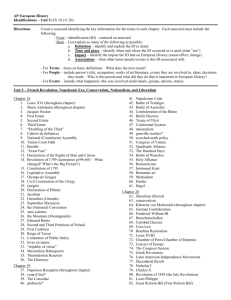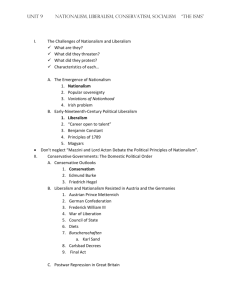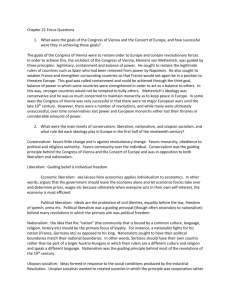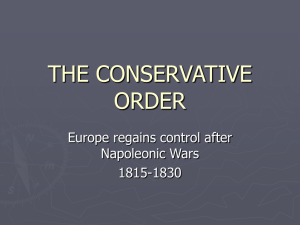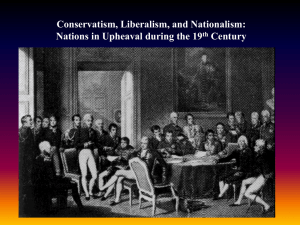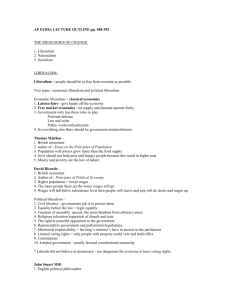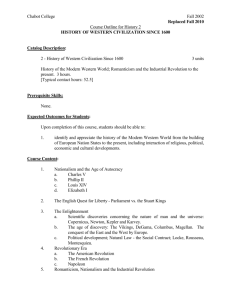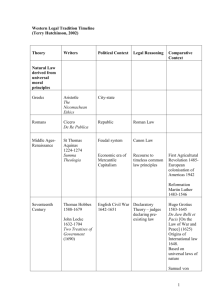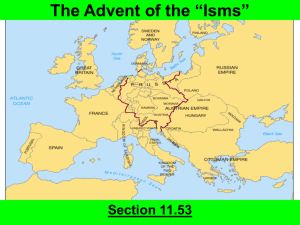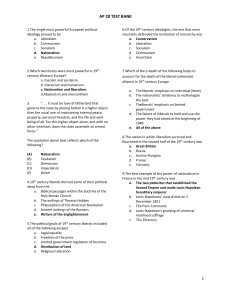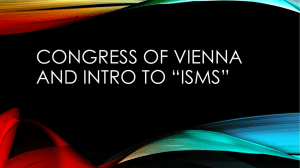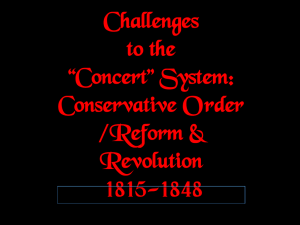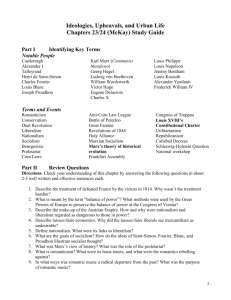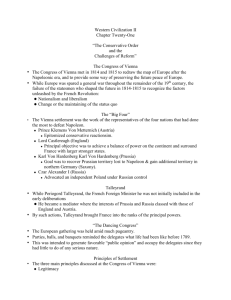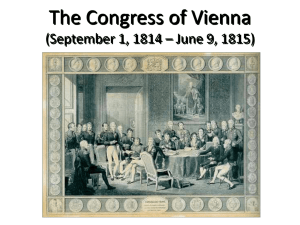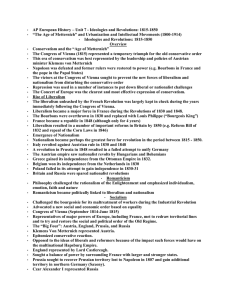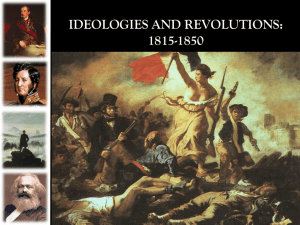Ideologies and Upheavals, 1815
advertisement
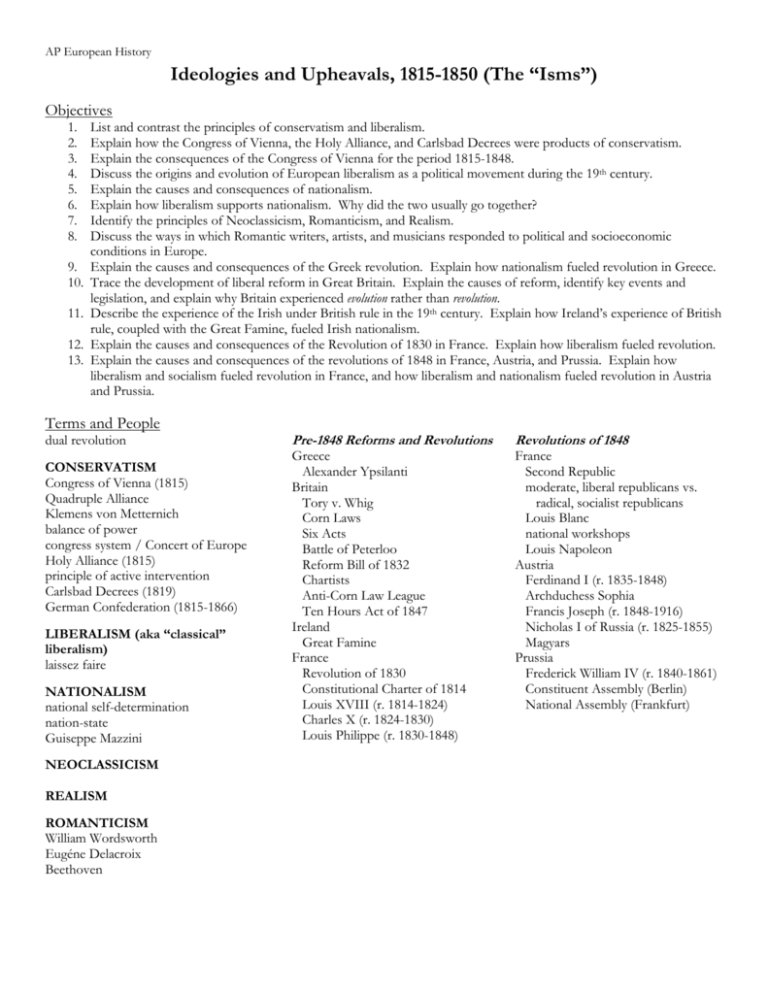
AP European History Ideologies and Upheavals, 1815-1850 (The “Isms”) Objectives 1. 2. 3. 4. 5. 6. 7. 8. 9. 10. 11. 12. 13. List and contrast the principles of conservatism and liberalism. Explain how the Congress of Vienna, the Holy Alliance, and Carlsbad Decrees were products of conservatism. Explain the consequences of the Congress of Vienna for the period 1815-1848. Discuss the origins and evolution of European liberalism as a political movement during the 19th century. Explain the causes and consequences of nationalism. Explain how liberalism supports nationalism. Why did the two usually go together? Identify the principles of Neoclassicism, Romanticism, and Realism. Discuss the ways in which Romantic writers, artists, and musicians responded to political and socioeconomic conditions in Europe. Explain the causes and consequences of the Greek revolution. Explain how nationalism fueled revolution in Greece. Trace the development of liberal reform in Great Britain. Explain the causes of reform, identify key events and legislation, and explain why Britain experienced evolution rather than revolution. Describe the experience of the Irish under British rule in the 19th century. Explain how Ireland’s experience of British rule, coupled with the Great Famine, fueled Irish nationalism. Explain the causes and consequences of the Revolution of 1830 in France. Explain how liberalism fueled revolution. Explain the causes and consequences of the revolutions of 1848 in France, Austria, and Prussia. Explain how liberalism and socialism fueled revolution in France, and how liberalism and nationalism fueled revolution in Austria and Prussia. Terms and People dual revolution CONSERVATISM Congress of Vienna (1815) Quadruple Alliance Klemens von Metternich balance of power congress system / Concert of Europe Holy Alliance (1815) principle of active intervention Carlsbad Decrees (1819) German Confederation (1815-1866) LIBERALISM (aka “classical” liberalism) laissez faire NATIONALISM national self-determination nation-state Guiseppe Mazzini NEOCLASSICISM REALISM ROMANTICISM William Wordsworth Eugéne Delacroix Beethoven Pre-1848 Reforms and Revolutions Greece Alexander Ypsilanti Britain Tory v. Whig Corn Laws Six Acts Battle of Peterloo Reform Bill of 1832 Chartists Anti-Corn Law League Ten Hours Act of 1847 Ireland Great Famine France Revolution of 1830 Constitutional Charter of 1814 Louis XVIII (r. 1814-1824) Charles X (r. 1824-1830) Louis Philippe (r. 1830-1848) Revolutions of 1848 France Second Republic moderate, liberal republicans vs. radical, socialist republicans Louis Blanc national workshops Louis Napoleon Austria Ferdinand I (r. 1835-1848) Archduchess Sophia Francis Joseph (r. 1848-1916) Nicholas I of Russia (r. 1825-1855) Magyars Prussia Frederick William IV (r. 1840-1861) Constituent Assembly (Berlin) National Assembly (Frankfurt)
